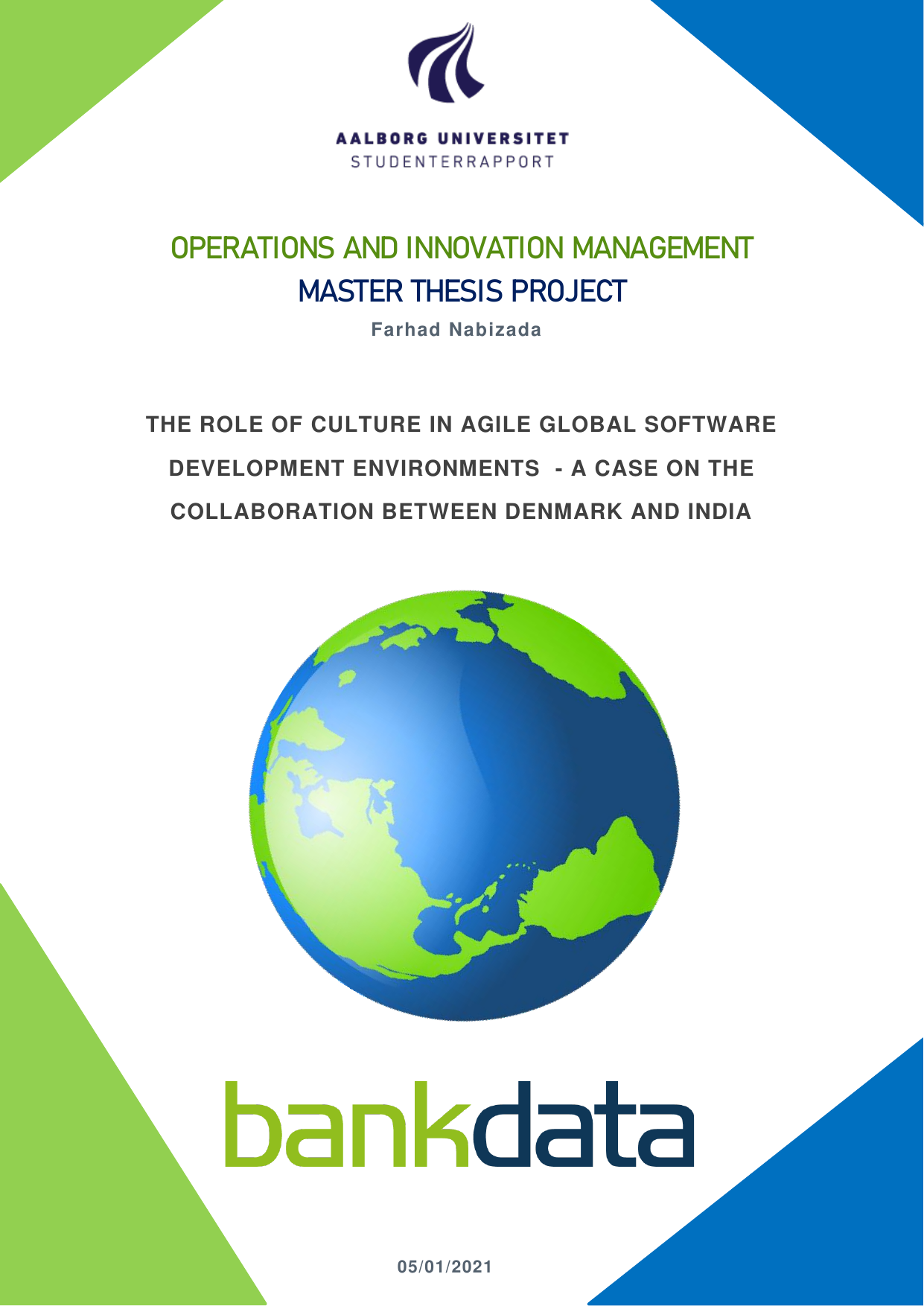
The role of culture in agile global software development environments - a case on the collaboration between Denmark and India
Translated title
Kulturens rolle i agile softwareudviklingsmiljøer - en case omkring samarbejdet mellem Danmark og Indien
Author
Term
4. term
Publication year
2022
Submitted on
2022-01-24
Pages
87
Abstract
Den danske afdelingsleder fra Bankdatas udviklingscenter i Indien har udtrykt, at der er en masse underliggende kulturelle barrierere, som i mange tilfælde forhindrer virksomheden i at udføre deres arbejde som ønsket. Gennem en grundig literaturstudie kombineret med adskillige observationer, undersøgte jeg relationerne mellem kultur, innovation, kreativitet, agile metoder, og offshore samarbejde for at forstå den kontekst hvori opgaven er skrevet. Formålet med opgaven var at undersøge kreativitetens rolle i agile sammenhæng, når to kulturelt forskellige nationer indgår i et tæt samarbejde. Som en del af rapporten, udarbejdede jeg huskeregler der kan rådgive Skandinaviske virksomheder, som ønsker enten at styrke eller etablere et samarbejde med Indien. Gennem undersøgelsen lærte jeg, at kultur bærer en vigtig rolle i styrkningen af samarbejdet mellem to vidt forskellige nationer. En stærk kultur er med til at forbedre rekrutteringen og socialiseringen af de Indiske ingeniører således, at de arbejder ud fra det sæt af værdier, der er relevant for den virksomhed som de er ansat hos.
There is much literature on the obstacles caused by cultural differences in global software development projects, but limited insight on how such differences affect the collaboration between Denmark and India. Researchers have found that strong hierarchical nations such as India, have a history of fostering behavior that is in contrast with good Scrum. I sought to deepen this understanding through a literature study as well as case study. The case study was limited to the duration of one semester, observing three Scrum teams where Indian engineers (employed by 7N, India) work together with Bankdata (Denmark) on agile software development projects. The literature study focused on the interplay between culture, agility, innovation, creativity, and socio-cultural collaboration. The work was limited to focus on the role of culture, investigating how cultural barriers affect the effectiveness of agile practices. The first research question was used to investigate the role of culture in agile context, understanding how culture sets the foundation for a healthy trans-national collaboration, and how culture can be used to foster creativity. Findings from this study suggests Scandinavian firms must develop strong and transparent organizational cultures that support the onboarding and socializing of Indian employees. With a strong and empowering organizational culture, firms are able to stimulate behavioral changes so that Indian engineers behave according to the firms’ values and needs, and to the three pillars of empiricism that characterizes good Scrum (adaptation, inspection, and transparency). I found that Bankdata has mitigated many cultural challenges already, but that there are still cultural barriers rooted into the way individuals from strong hierarchical cultures think. These cultural barriers are in contrast with good Scrum and cannot just be changed overnight, leaving Bankdata as well as many other European firms prone to obstacles they know exist, but cannot mitigate.
Keywords
Documents
